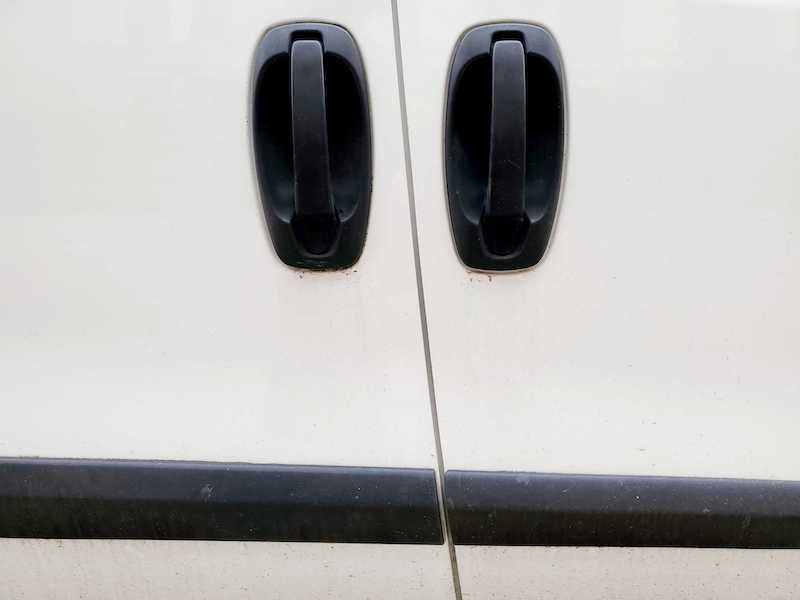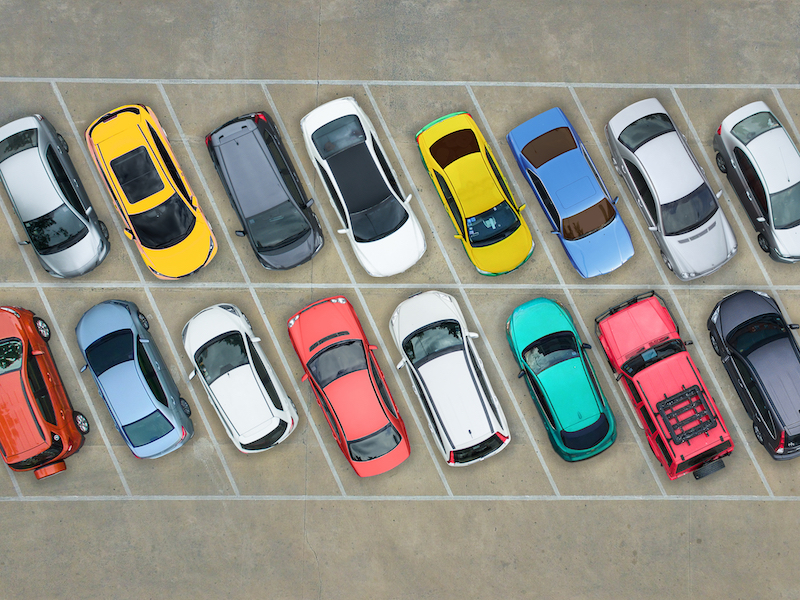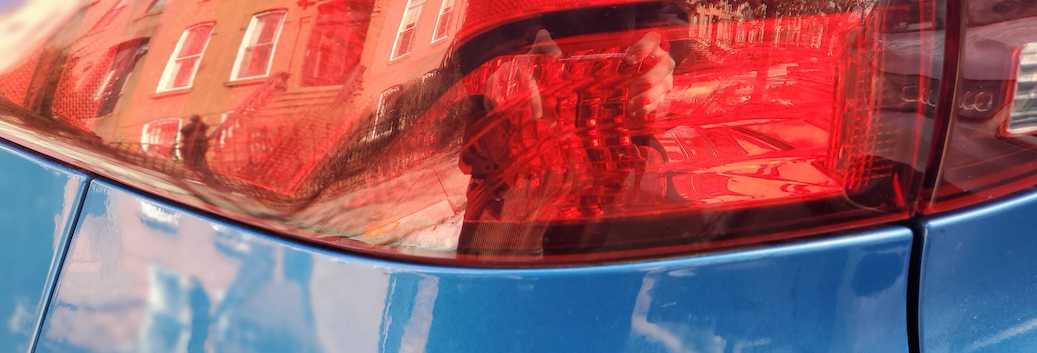Why does car insurance cost so much? For some policyholders, the answer is a mystery. Are you paying the best rates for where you live, or could you find something cheaper? And is cheaper actually a better route to go if it means having less coverage?
You’re legally required to have car insurance, which is enough of a reason to get it. But you probably have a list of things you expect your policy to cover that are well above the minimum legal requirements. Between the costs, requirements, and ease to file a claim, comparing car insurance quotes can get pretty overwhelming.
How can you make sure you’re getting the right policy at a fair price? At Lemonade Car, we’re here to help shine a light on the ins and outs of building and comparing car insurance quotes.
If you find yourself looking for car insurance quotes and comparison shopping, there are some things you should keep in mind. Here’s everything you need to know about car insurance quotes to make sure you get the best deal and right coverage for you.
What is a car insurance quote?
A car insurance quote is an estimate of the price for your insurance. This estimate is calculated using the answers you provide when you get your quote. It is not necessarily your final premium.
Quotes are helpful because they give you an overview of what you can expect to pay based on the coverages you select. They give you an idea of what you’ll pay for an auto insurance policy from each carrier you get a quote from before committing to one. These quotes might all come out to different car insurance rates based on how risky each insurer considers the cars and drivers on your policy to be.
Insurers will review your driving history, any violations, and whether or not your cars have been in an accident. When you get a quote, insurers will ask a series of questions, and verify your answers with public information—like details that are linked to your driver’s license and vehicle identification number. So when it comes to applying for car insurance policies, honesty really is the best policy.
How can I compare car insurance quotes?

Is your current car insurance policy up for renewal, and you’ve decided to do some comparison shopping? Smart move—taking the time to research and compare car insurance options could save you a lot of money and headache later down the road. But smart shoppers know to focus on more than just getting cheap car insurance.
Good car insurance combines the coverage you need with a rate and deductibles you can afford. But to go from good to great, look for an insurer who gives low-mileage discounts, offers free roadside assistance, and even plants trees to help clean up your carbon emissions. (Hint: we’re talking about Lemonade).
Ready to perform an insurance quote comparison? Follow these steps:
- Customize your car insurance coverage
It’s important that you customize the car insurance quotes you’re comparing with the same coverages. Some insurers may advertise ‘full coverage’ without actually providing limits as high as one of their competitors. You could create the policy of your dreams in an online quote with Lemonade and then opt for less coverage with another car insurance provider. This might make their quote look like the best price, but that’s because you’d be getting less for your money.
While you can mix and match most coverages, any state generally requires that drivers carry liability insurance. Liability insurance pays out when you’re liable—i.e., at fault—for an accident. If you run a red light and hit another car, it pays for the repairs to their vehicle (and possibly compensates them for injuries, too).
The amount of coverage you choose when getting a quote will have a direct impact on the quoted car insurance rates. Not all companies offer every coverage option on this list, but the type of coverage you pick directly influences car insurance prices.
Collision coverage
Collision coverage is what most people think of when they think of car insurance coverage. It helps pay to repair the damages to your car (or to help replace it in the case of a total loss) when you’re in an accident with another car or object.
Comprehensive coverage
Did your teen driver hit a deer? Did your car get pretty dinged up from that last hail storm? Comprehensive coverage helps pay for those repairs.
Bodily injury liability
This coverage usually has a state minimum. Bodily injury liability coverage falls under the general banner of liability coverage. In an at fault accident, it covers the medical costs for anyone that you injure in the car accident.
Property damage liability
Fixing the neighbor’s fence that your teen driver crashed into falls under property damage liability coverage, which covers property damage to someone else’s property.
Uninsured motorist or underinsured motorist coverage
Unfortunately, despite the law, there are some drivers without insurance. In a car accident with an uninsured motorist, you’d have to cover all the repairs and medical costs yourself.
The same thing is true with an underinsured motorist – if they selected low coverage limits and their car insurance policy won’t pay for all your repairs, you could be on the hook for the rest. Uninsured motorist and underinsured motorist coverage protects you in these situations.
Medical payments coverage and personal injury protection coverage
Medical payments (aka MedPay) coverage will pay for medical bills related to an accident. It will cover you and the other passengers in your car for things like the cost of health insurance copays and deductibles, doctor or hospital visits, surgeries, X-rays, ambulances, and more.
MedPay is also sometimes referred to as medical expense coverage. It is not required but may be a good add-on if you want to be truly protected on the road. If you’re responsible for a car accident and you (or your passengers) need medical care, you may have to pay for it out-of-pocket if you don’t have medical payments protection, and if your health insurance doesn’t foot the bill.
Medical payments protection isn’t available in all states because some require similar coverage called personal injury protection (or PIP) that will similarly cover damage for medical care in case of an accident. The main distinction between MedPay and PIP is that PIP covers more stuff—including health costs and resulting lost wages for you and your passengers after an accident, regardless of who was at fault.
Full coverage
Full coverage includes it all, but this definition will likely change for each insurance company. Some will say this is liability coverage for bodily injury and property damage, uninsured motorist or underinsured motorist, personal injury protection, collision, and comprehensive. Others define it to also include towing, rental, and full glass coverage. Keep in mind, that if you want it all, picking full coverage won’t be the cheapest car insurance.
Some states have minimum coverage requirements—particularly for liability coverage—and an insurance agent can’t sell a policy that doesn’t meet them.
- Pick deductibles that work for your budget and risk tolerance
After you pick your car insurance coverages, it’s time to choose a deductible for comprehensive and collision coverages. Your car insurance deductible is the amount of money you’d contribute when your insurance company pays for a covered claim. Higher deductibles means lower car insurance premiums, and vice versa.
That’s because if you have a high deductible, you pay more towards an accident’s costs and your insurer pays less. You can work with your insurance company to decide what the right deductible is for you, and it may end up that you want different amounts for each of the coverages that have deductibles.
- Compare rates at different companies
Pour yourself a cup of coffee, grab your list of coverage levels, and fill out some online quotes with a few different car insurance providers. Remember: Keep your selected coverages the same! Then, look at extras—like roadside assistance, low-mileage discounts, seamless claims, and an easy customer experience. There’s more to your car insurance policy than its coverage levels.
How do car insurance companies price policies?

If you’re comparison shopping for a new car insurance policy, you’ll probably want to know how car insurance companies price them? Knowing how could explain why your average rates are similar with many different companies.
The reason? Insurers often use the same data inputs to set car insurance prices, though their pricing methodology varies. Here’s what they look at:
- Driving history. Never had a speeding ticket? You’ll probably get better rates than someone with tickets. Drivers with clean driving records present less risk to insurance providers.
- Insurance score. An Insurance Score represents how likely you are to make an insurance claim. Drivers with poor insurance scores may have a harder time getting “the best rates.”
- Vehicle information. Some vehicles are more accident or theft prone and have higher repair and replacement costs. A new car will cost more to insure because parts to fix it and a payout if it’s a total loss will be higher.
- Homeowners. Did you know that homeowners pay less for car insurance, even if they don’t bundle car and home insurance? It’s true. They represent less risk.
- Age. Sorry, young drivers, while you may have affordable car insurance, it probably won’t be the cheapest car insurance. You’re statistically more likely to get in an accident or get a speeding ticket before you gain more experience behind the wheel.
Why should I include Lemonade in my comparison shopping?
We’re so glad you asked!
We’re working hard to be one of the best car insurance companies on the road. Lemonade Car offers discounts when you combine your car insurance policy with homeowners, renters, pet, or life insurance from Lemonade. Our policies are completely customizable, and your bundle discount is automatically applied. And have we mentioned our app?
Lemonade Car was built to be used with our app, so we’re able to fairly price policies based on the way you actually drive. Every six months, when your policy comes up for renewal, we calculate a new safety score. This score looks at your driving behavior—like phone usage, smoothness, and miles driven—to reward safe and low-mileage drivers with better car insurance rates.
After you’ve priced out auto insurance policies and made a choice, you’ll drive easier knowing that you found the best car insurance company for you.
Have your coverage list ready and want to start comparing quotes? Click below to get your Lemonade quote today!
A few quick words, because we <3 our lawyers: This post is general in nature, and any statement in it doesn’t alter the terms, conditions, exclusions, or limitations of policies issued by Lemonade, which differ according to your state of residence. You’re encouraged to discuss your specific circumstances with your own professional advisors. The purpose of this post is merely to provide you with info and insights you can use to make such discussions more productive! Naturally, all comments by, or references to, third parties represent their own views, and Lemonade assumes no responsibility for them. Coverage and discounts may not be available in all states.




